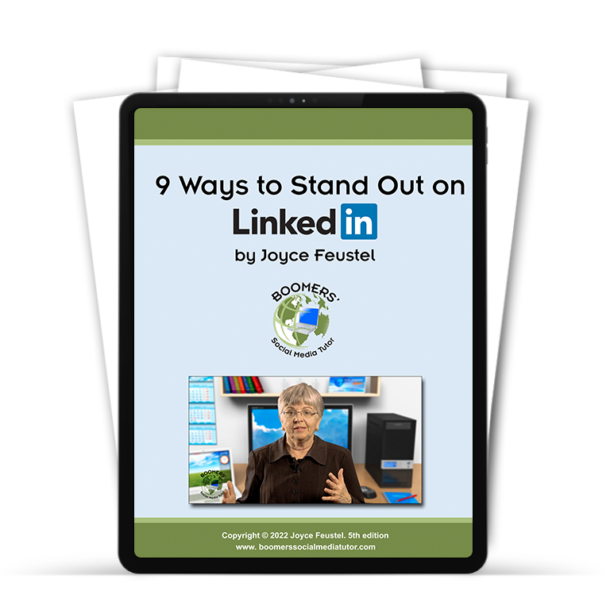Are you part of any Facebook groups?
Many people on Facebook like to join various groups that other Facebook members have created. According to Facebook, groups “provide a closed space for small groups of people to communicate about shared interests.” And, anyone with a Facebook account can create one.
You might want to join groups related to a hobby, such as gardening, to get ideas or advice from other gardeners. Or you might join a business networking group to share ideas on starting and operating a specific type of business. You can actually join up to 300 groups – although I can’t imagine how you’d keep track of that many!
The Three Types of Groups and Their Benefits
- Open Groups
- Anyone with a Facebook account can join.
- The list of members, all discussions, and any photos or files posted in these group can be seen by anyone on Facebook.
- Open groups are great for people who have a common hobby and like to share tips about it.
- Closed Groups
- Anyone with a Facebook account can request membership, but that request must be approved by one of the group’s administrators. Generally, if they don’t know you personally (or on Facebook), they will go to your Facebook page and see if your profile indicates that you meet the parameters set for membership. For example, if you want to join the alumni page for a particular school, but you have a different school listed on your profile, you are likely to be denied membership.
- All discussions within the group, and any photos or files posted in these can be seen only by members of the group. This makes it possible for people to communicate about the group and its activities without people outside the group having access to these discussions.
- However, anyone on Facebook can see who are the members in the group on the group’s page, as well as on the personal Facebook pages of those who are in the group.
- Closed groups offer a great way for groups who meet in person on a regular basis to stay in touch between meetings. Information can be posted about upcoming or cancelled meetings, guest speakers, or other membership matters.
- Secret Groups
- These groups have all the features of a closed group. However, only the members of the group know that it exists. Therefore, in order to become a member, one would have to be invited.
- If someone went to your personal Facebook page and looked at the list of Facebook groups you are a member of, the list would include open and closed group, but not secret groups.
- Secret groups provide a great way for people to meet on Facebook without exposing their personal information. For instance, if a group of teens wants a place to talk about a social issue they are facing, this type of group allows them to maintain their privacy. Sadly, there are people who use Facebook to prey on teens, so this type of group allows teens to have access to trusted adults and each other without the chance that their personal information might be used to harm them.
- This type of group can also be useful for leaders in any organization (a business with far flung employees or contractors, a networking group, a club, etc.,) who want to communicate between physical meetings.
As you can see, different types of groups have evolved to suit the different types of needs Facebook users have expressed over time.
How About You?
Do you participate in Facebook groups? What are your favorite types? What would cause you to leave a group?
About Joyce
Joyce Feustel helps people, especially those age 50 and up, to become more comfortable using social media, especially Facebook, LinkedIn, Pinterest, and Twitter.
She works with business owners, nonprofit organizations, retired people, consultants, and many others. Find her at www.boomerssocialmediatutor.com.

![Colorful_People_In_Circle[1]](https://boomerssocialmediatutor.com/wp-content/uploads/2014/06/Colorful_People_In_Circle1-150x150.jpg)
![batch001-203[1]](https://boomerssocialmediatutor.com/wp-content/uploads/2012/11/batch001-2031.jpg)
![joycefeustel_1334461223_600[1]](https://boomerssocialmediatutor.com/wp-content/uploads/2013/12/joycefeustel_1334461223_6001-150x150.jpg)


[…] Facebook Group, you don’t want to start promoting your company and your Facebook Page. Instead, participate and be helpful to the current group members. The aim is to build up a level of credibility, so that people […]
Thanks for that reminder that the culture of social media is about being of service and not being promotional.